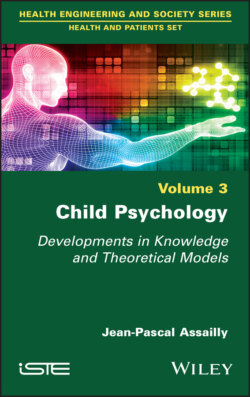Читать книгу Child Psychology - Jean-Pascal Assailly - Страница 51
1.11. Maternal employment in early childhood
ОглавлениеEmployment rates of mothers have increased substantially in recent decades, with this increase being particularly noticeable among mothers of young children under the age of five. Much of this growth occurred in the 1970s. However, the mid-1990s saw an increase in the employment rate of low-income single mothers.
The issue of mothers returning to work or entering the workforce shortly after childbirth has been a source of great concern to parents, policymakers and researchers and has prompted numerous analyses of the impact of early maternal employment on child development.
Developmental psychologists first voiced their concerns in the 1980s in a series of highly discussed and debated papers by Belsky (1988, 1990). In these papers, he highlighted that more than 20 hours per week of out-of-home day care poses risks to the infant–mother relationship and to psychological and behavioral adjustment during infancy, preschool and early elementary school.
It was against this backdrop of such dramatic changes in motherhood, employment, child care and a heated debate about its effects on child development and on society in general that a National Institute of Child Health and Human Development (NICHD) and an Early Child Care Research Network were established in the United States.. This network centered its work on the question of whether early child care before the age of five was associated with risks or benefits to child development.
At the same time, economists were focusing on how children are impacted by choices about employment, in particular on two resources important to children’s well-being: parents’ time and money. Economists suggested that parents may invest more in their child’s development, because more income from working is available to purchase material resources (such as books, toys or healthy food) and non-monetary goods (such as access to leisure activities). However, working longer hours may limit the time available for children (and thus the bond). This view therefore suggests that there will be trade-offs when mothers work, between increased income and reduced time with their children.
Together, these views suggest that mothers’ entry into the workforce when their children are young poses particular challenges to their development. Consequently, the trade-off between maternal employment, particularly in the first year of a child’s life, and the effects on children are important empirical questions.
Literature on the subject (Im 2018) suggests that young children in low-income settings are affected by maternal employment and that these effects differ according to paternal involvement; maternal employment in the early years is associated with adverse effects on aggressive behavior and internalized problems in young children.
Young children whose mothers begin or return to work in the first year after childbirth thus present internalized problems. Non-maternal care and maternal employment are certainly not identical but are assumed to be related.
Alternatively, the effect of early maternal employment on a young child’s cognitive functioning may vary according to subgroup-specific characteristics, such as family income. Put another way, poverty could have a pre-weighted effect on the development of cognitive abilities. For example, there are many hypotheses that affluent parents talk much more with their children and use a wider vocabulary. Thus, for economically disadvantaged families, having mothers with their children may result in a weaker impact on cognition if children are still not receiving the stimulation (e.g. expressive and receptive language skills) that predicts later cognitive outcomes, even with their mothers.
According to the economic view of child development, the main idea was therefore that mothers’ entry into the labor market would increase family economic resources, which would facilitate children’s development, but would require a trade-off between increased income and reduced time spent with children. However, the work of psychologists does not support this hypothesis.
Rather, this work shows that mothers staying home to care for their infants in the first year, in conjunction with greater father involvement with young children, is a more beneficial solution than bringing more income into the household: children would thrive when high-quality parenting is available, even when the family is financially disadvantaged, and even though high income may facilitate good parenting.
Another important dimension of the problem is the involvement of fathers in bringing up children. Paternal involvement may offset the reduction in time spent by employed mothers with their children, thereby reducing the potential negative effects (on attachment insecurity) of maternal employment on child development. The moderating role of paternal involvement is associated with a lower incidence of internalized problems in children.
